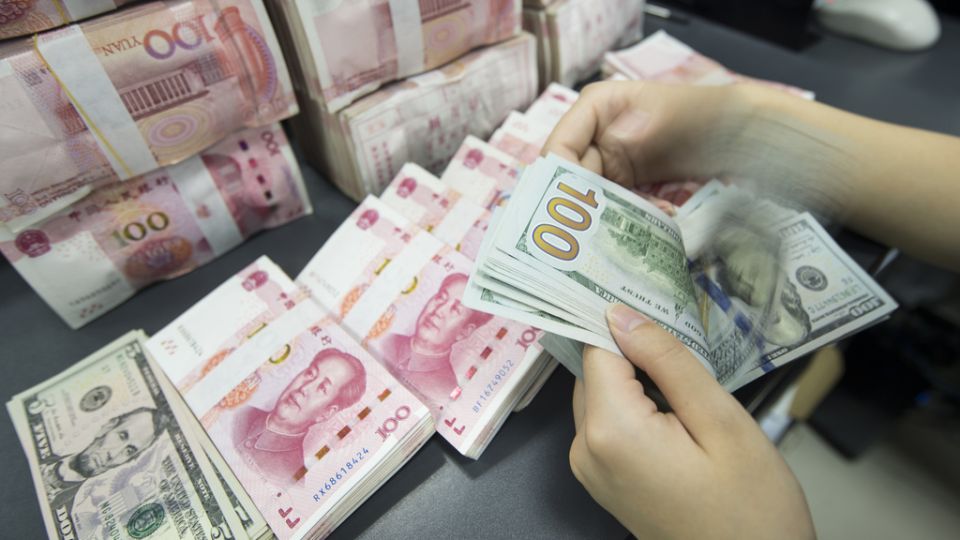July 25, 2022
BEIJING – Regulator assures economy is stable, keeps ‘close eye on external changes’
China will observe the ongoing monetary tightening in the United States and should be able to deal with any possible spillover effects, given the prospects for its stable economic growth and the resilience of its foreign exchange market, officials and experts said on Friday.
The remarks emerged amid concerns that the US Federal Reserve’s aggressive tightening could erode financial stability of emerging economies by creating capital outflows and exchange rate fluctuations.
Wang Chunying, deputy head of the State Administration of Foreign Exchange, said the country needs to closely monitor the intensity and pace of the Fed’s policy adjustments and pay attention to their impact on interest rates, exchange rates and international financial markets.
“We will keep a close eye on external changes, assess related impacts in a timely way and promote reform and opening-up in the foreign exchange sector in an orderly manner, so as to make preparations for effectively preventing and resolving external shocks,” she said at a news conference on Friday.
The Fed has raised interest rates by 150 basis points already this year. Yet, it is expected to announce another rate hike of 75 basis points next week to tame inflation, experts said, after the European Central Bank lifted interest rates by half a percentage point on Thursday for the first time in 11 years.
Compared with the Fed’s last tightening cycle from 2013, China now is more capable and confident of dealing with the spillover effects on cross-border capital flows, Wang said, citing the country’s stronger economic strength and healthier international payments.
The country’s foreign exchange market has become more capable of absorbing external pressures with more types of investors and a more flexible exchange rate of the renminbi, Wang said.
Experts said the country’s foreign exchange market has withstood the impacts of the Fed’s tightening in the first half of the year, with generally balanced cross-border capital flows and a resilient exchange rate of the renminbi.
The Fed’s rate hikes underpinned a strong dollar. Consequently, as of Thursday, the euro, the British pound and the Japanese yen had weakened between 10 percent and 17 percent against the dollar this year. In contrast, the renminbi shrank only 5.8 percent against the greenback during the same period.
Meanwhile, China’s cross-border receipts and payments by non-banking sectors reached $3.16 trillion and $3.0766 trillion, respectively, in the first half, indicating a surplus of $83.4 billion, according to SAFE.
Nevertheless, official data also showed short-term fluctuations in cross-border capital flows, including in the bond market.
In June, cross-border receipts and payments registered a deficit of $2.8 billion. As for the bond market, overseas institutions held 3.64 trillion yuan ($538.7 billion) in outstanding bonds in China as at the end of June, down from 3.74 trillion yuan a month earlier, official data showed.
Despite the short-term fluctuations, foreign investors are expected to steadily increase their holdings in renminbi-denominated bonds in the long run, given the diversification benefits provided by the asset class, investors’ demand for allocation and China’s stable economic fundamentals, Wang said.
A recent study by Invesco, a global investment management company, also found that renminbi allocations rose from 1.1 percent of central bank foreign exchange reserves in 2016 to 2.8 percent at the end of 2021, with most of the surveyed central bankers intending to increase renminbi positions in the next five years.
Wang said the repatriation of profits by foreign enterprises has not disrupted the country’s demand-supply balance in foreign exchange, nor does it mean a withdrawal of investments.
Compared with other major economies, China has seen a relatively high proportion of foreign corporate profits reinvested in the country, she said.
To further facilitate multinationals’ cross-border use of cash, the People’s Bank of China and SAFE announced on Friday the launch of the second batch of pilot programs of the integrated cash pool of local and foreign currencies in Shanghai, Guangdong province and other regions.


